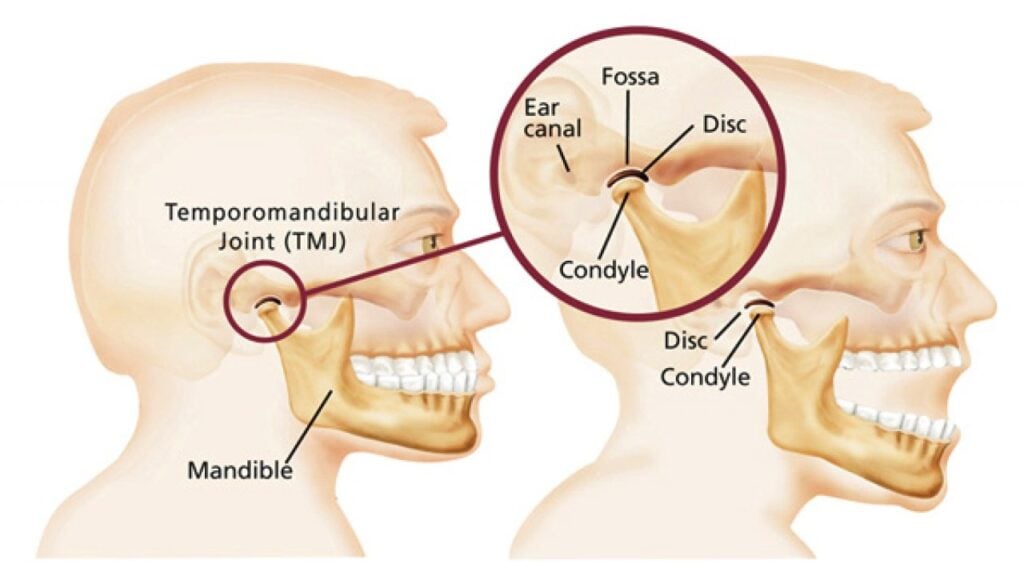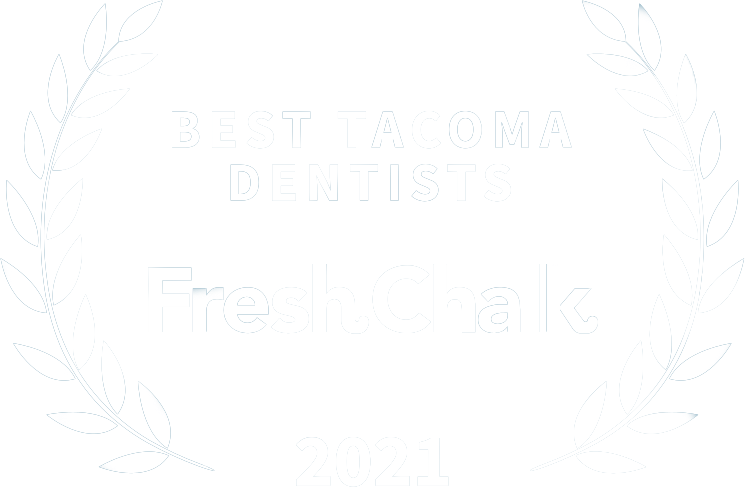Temporomandibular Joint (TMJ) Issues and Treatment
The temporomandibular joint (TMJ) connects the lower jaw, or mandible, to the skull in front of the ear. It is comprised of bones, muscles, nerves, and blood vessels. You have a TMJ on each side of your jaw. The TMJ is a hinge joint that controls the movement of the lower jaw. It allows you to open and close your mouth and is involved in chewing, talking, swallowing, and yawning.

Issues in the TMJ can cause pain and affect the muscles of your jaw.
If you have tenderness in your jaw, difficulty moving your jaw, experience facial pain, or notice a popping or clicking sound when you move your jaw, you may need treatment. Other issues can include neck pain, ear pain, dizziness, tinnitus (ringing in the ears), and headaches (including migraines).
Left untreated, TMJ disorder, also known as TMD, can lead to difficulty with opening the mouth fully or cause dislocation, which locks your mouth in a closed or wide-open position.
At Bright Smile Dentistry, we offer several treatments for TMJ/TMD issues.
What causes TMJ disorder?
Even though millions of Americans are affected by TMJ disorder, there is no known cause. There are, however, several conditions that can contribute to issues with TMJ.
These conditions include:
- Trauma to the face or jaw
- Disease
- Wear and tear from aging
- Osteoarthritis
- Rheumatoid arthritis
- Bruxism (teeth grinding)
- Teeth clenching
- Infection of the joint
- Cancer
- Congenital disabilities that affect the joint
When does TMD require medical care?
While occasional pain in the jaw may be normal and resolve on its own, there are times to seek medical care.
The most obvious need for care is if your jaw dislocates, which causes it to lock in a wide-open or closed position. This requires immediate attention, usually in an emergency room setting. The ER doctor will reduce your jaw (manipulate it back in place). Manipulation usually requires pre-medication with anti-anxiety and pain medications.
If you are experiencing symptoms that do not go away, such as pain, difficulty chewing or swallowing, or suffer from frequent headaches, you should see your dentist for treatment. It is much easier to treat TMJ disorders before they lead to serious issues like dislocation.
How can a dentist help with TMD?
While many people think of dentists as only “teeth doctors,” dentists are educated about everything regarding the mouth and bite. This includes the muscles and joints of your jaw. Your dentist can help by diagnosing TMD and educating you about how the jaw and joints function.
When diagnosed with TMD in its early stages, preventative suggestions can be quite helpful. For instance, chewing gum and hard to eat things like beef jerky should be avoided. Your dentist can help you come up with a plan to minimize symptoms and future issues.
Since grinding and clenching the teeth contribute greatly to TMD, if you have this habit, a mouthguard may be needed. A custom-made mouthguard will keep you from grinding and clenching. These are most often needed at nighttime when bruxism is harder to control.
You may also need to do things to reduce stress, as this increases clenching and grinding. In severe cases, medications or cognitive behavioral therapy may be needed.
If your TMD is related to tooth and alignment problems, you may need orthodontic treatment, such as braces, to realign your jaw and teeth.
Other treatment options include:
- Using ice packs and heat
- Taking over-the-counter pain relievers
- Learning relaxation techniques
- Prescription muscle relaxers
- Eating soft foods
- Taking measures to reduce jaw movements
- Jaw-stretching exercises your dentist can teach you
In severe, rare cases, surgery may be required to correct TMD.
Contact Bright Smile Dental Today
If you have symptoms or worry you may have TMD, please contact us today. Our team wants to help you find relief from your pain as soon as possible , Call us today at (253) 475-0262 Or Schedule An Appointment Online.

